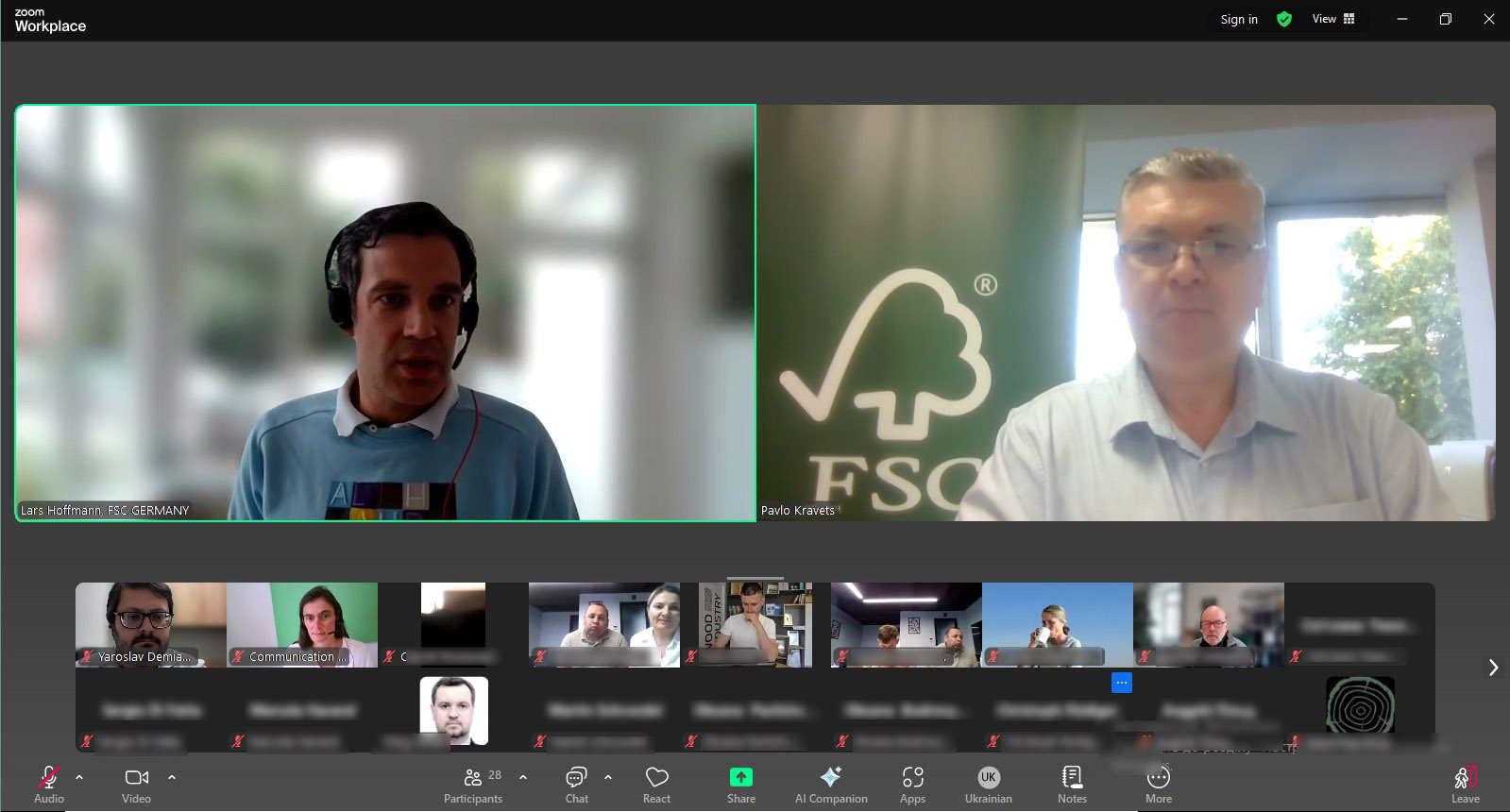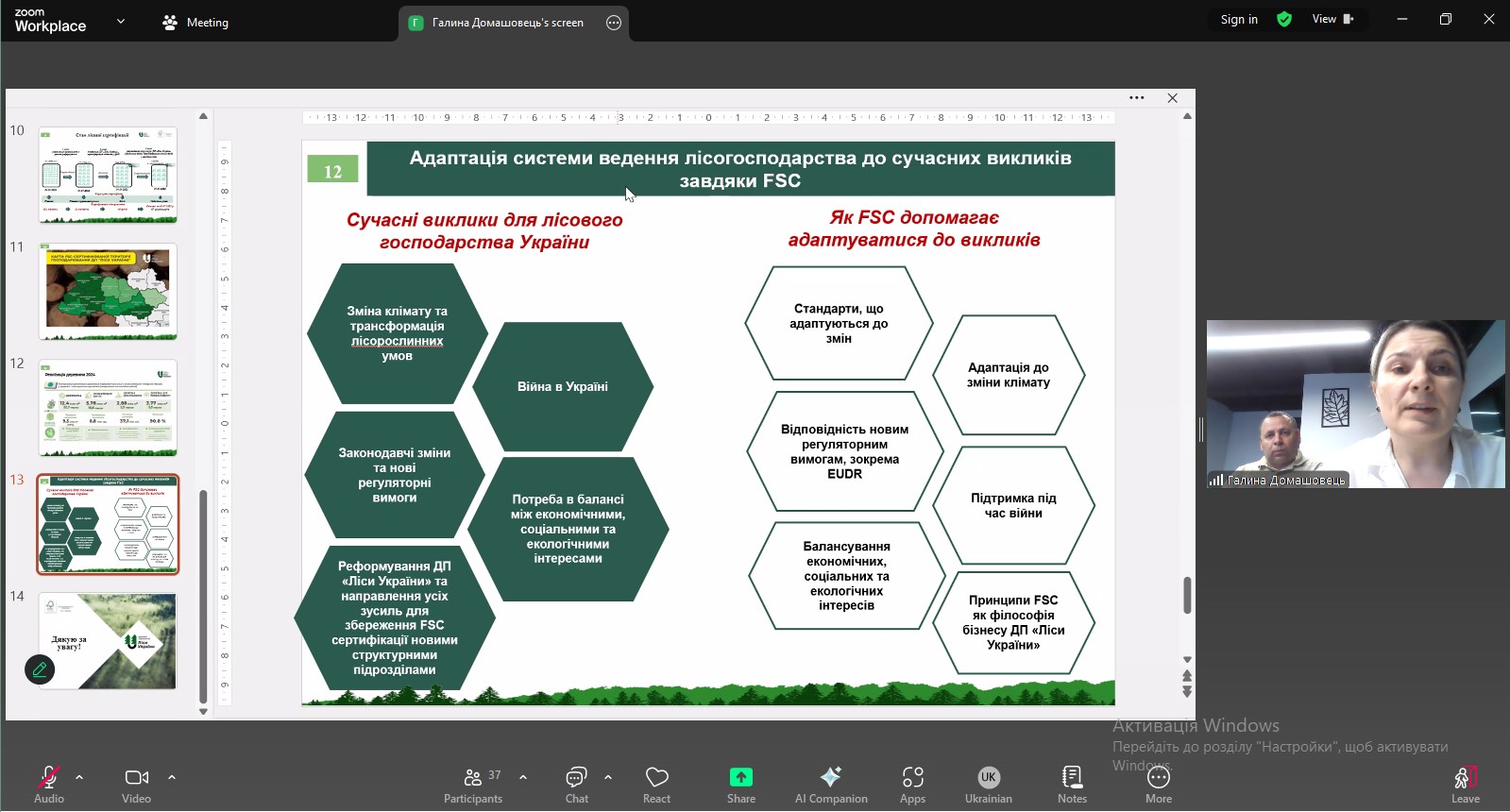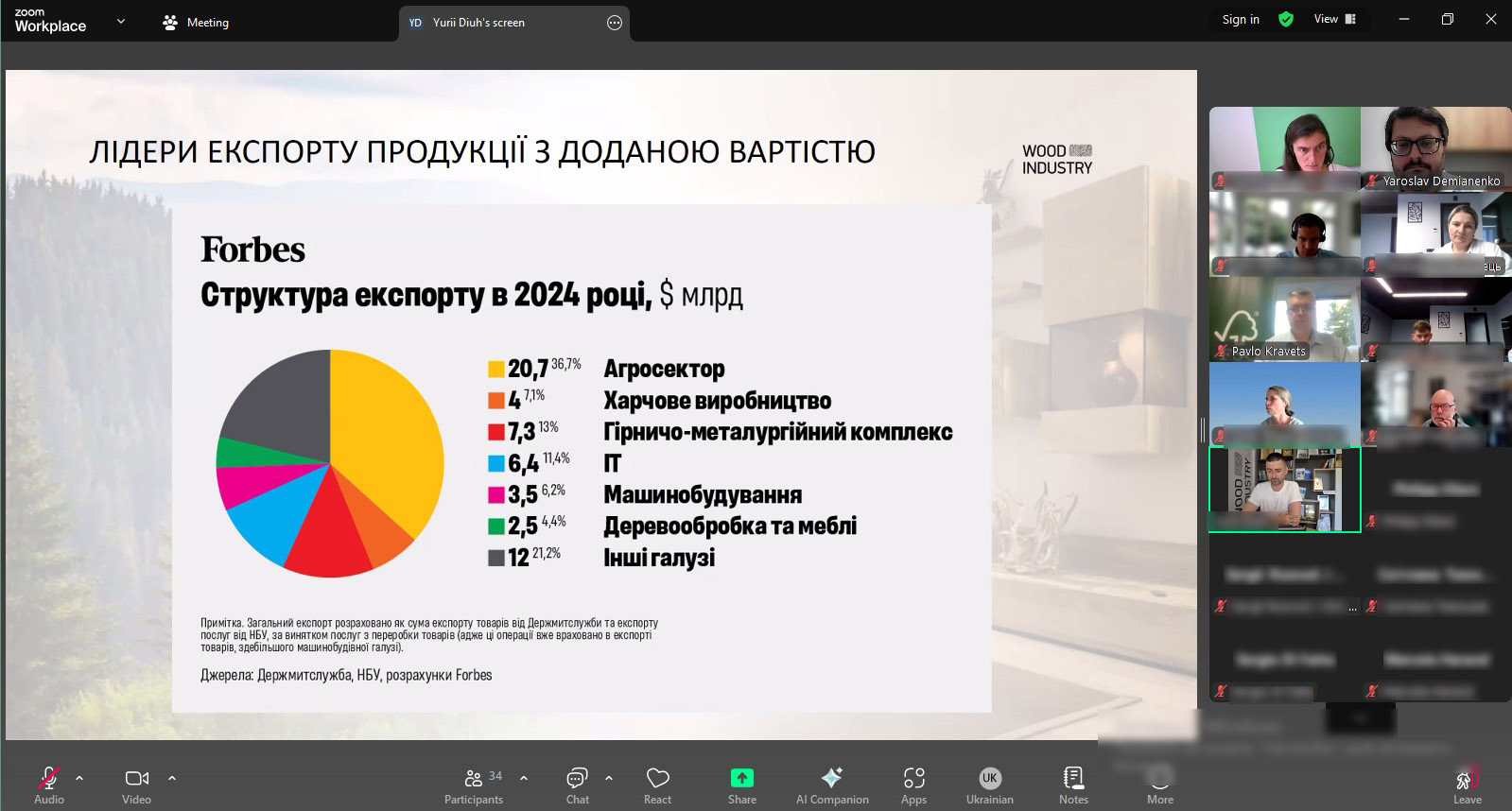
The goal of the meeting was not only to demonstrate the resilience of Ukraine’s forestry sector, but also to strengthen ties between businesses and stakeholders in Ukraine and Germany who are ready to support the further development of FSC. The open format of the dialogue allowed participants to learn more about the current state of forestry, woodworking and furniture business, taking into account the risks and challenges of the extraordinary situation in the country.
The State Forest Enterprise ‘Forests of Ukraine’ remains a key partner in maintaining the stability of the forestry sector, for which certification is an integral part of its development strategy. Ihor Lytsur, Executive Director of SFE ‘Forests of Ukraine’, emphasised: “We have 6.6 million hectares of forest under our management, 69% of which is FSC-certified. The FSC system is the philosophy behind our company's development based on sustainable forest management.”

In response to the challenges of our time, the FSC system promotes the adaptation of forestry management systems. According to Halyna Domashovets, Head of the Forest Certification Sector of the Forestry Department of the SFE ‘Forests of Ukraine’, “an example of such adaptation is Appendix J of the updated FSC standard for Ukraine, which allows to excise areas from the scope of certification, thereby maintaining its effect on other areas. Thus, increasing the requirements for the management system of certificate holders introduces measures to reduce risks to the life and health of both forestry workers and forest visitors.”
Despite the extraordinary challenges, the Ukrainian woodworking and furniture business is demonstrating high resilience and continues to develop, maintaining and strengthening its export positions.
Yuriy Dyug, coordinator of the WOOD Industry UA platform, noted: “It is quite difficult for furniture and woodworking companies to operate because the war requires the mobilisation of workers into the army, and this partly affects the pace of investment projects. Despite everything, we have examples in our industry, including in western regions, where large factories have been constructed. Therefore, businesses must be bold and understand that there is no option but to continue working. The industry is developing steadily despite everything, and this is evident even in statistical data, in particular, as analysed by Forbes last year,” he emphasised.

Pavlo Kravets, FSC Ukraine National Representative, informed those present about approaches and actions to ensure the integrity of supply chains and preserve the FSC's mission in Ukraine as a whole. Among other things, this includes constantly updating the FSC normative framework, strengthening communication with decision-makers, particularly on forest reform issues, facilitating the coordination of certification holders through calibration meetings, and providing additional tools for conducting risk-based audits. “I believe that we need to communicate more about our achievements in Ukraine, share our experience and promote the establishment of direct links between businesses and stakeholders in Ukraine and Germany. I am convinced that the new format of communication will deepen dialogue and increase trust in Ukraine's forestry sector”.
Alfred Schumm, CEO of FSC Germany, also summed up the positive results: “I am impressed by the flexibility and adaptability of the Ukrainian FSC market and the demand from Germany for FSC-certified wood and products. I consider this an important sign of support in difficult times”.

